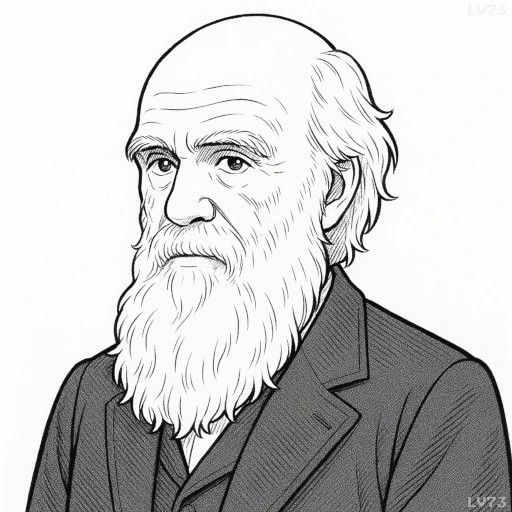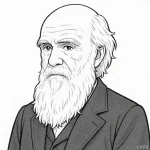“Man tends to increase at a greater rate than his means of subsistence.”

- February 12, 1809 – April 19, 1882
- Born in England (UK)
- Naturalist, geologist, biologist
table of contents
Quote
“Man tends to increase at a greater rate than his means of subsistence.”
Explanation
In this quote, Charles Darwin is referencing the concept that human populations have a tendency to grow at a faster rate than the resources available to sustain them. This idea, which closely aligns with Thomas Malthus’ theory of population growth, suggests that, without checks like disease, famine, or war, population growth would eventually outstrip the food and resources necessary for survival. Darwin applied this concept to his theory of natural selection, where the competition for limited resources leads to a struggle for survival, and only those most fit to acquire these resources survive to reproduce. This quote underscores the tension between human growth and the carrying capacity of the environment, which is central to the idea of evolutionary pressure.
Historically, Darwin incorporated Malthus’s ideas into his development of the theory of natural selection. Malthus had observed that populations tend to grow exponentially, while the means of subsistence—like food—grow at a slower, more linear rate. Darwin saw in this a powerful analogy for the struggle for existence in nature. Just as human populations are limited by resources, so too are animal populations and plant species. Those organisms best able to compete for resources in their environments would survive and reproduce, leading to gradual evolutionary changes over generations. Malthus’s ideas helped Darwin solidify his argument for the competition and selection that drive evolutionary change.
In modern times, this quote still resonates, particularly in discussions about population growth, sustainability, and environmental resources. In the face of overpopulation and the environmental crisis, the challenge of balancing human growth with the planet’s resources is more urgent than ever. As seen in issues such as food security, climate change, and the depletion of natural resources, Darwin’s insight about the limits of subsistence is still applicable. While human technology and agriculture have allowed us to expand our capacity to produce resources, the underlying principle that unchecked growth can lead to resource scarcity remains a key challenge in both ecology and economics.
Would you like to share your impressions or related stories about this quote in the comments section?
